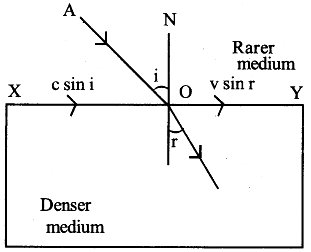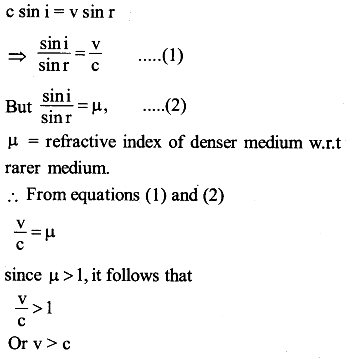
Suppose that the light corpuscles traveling with a velocity C in rarer medium along A O strike the interface X Y separating the denser medium (say, water) from a rarer medium as shown in above figure. After refraction, the light corpuscles travel inside he denser medium along O B with a velocity V. Let i and r be the angles of incidence and reflection respectively.
According to Newton’* corpuscular theory, the light corpuscles experience a force of attraction due to the denser medium, which acts along normal to the interface X Y. Obviously, the component of their velocities before and after the refraction along X Y must remain the same.

i.e., velocity of the light corpuscles in a denser medium is greater than that in a rarer medium. This result of the corpuscular theory is against the experimental result and therefore this theory was discarded. On the basis of Huygen’* wave theory, the phenomenon of refraction can be easily explained and it can be proved that c > v. Therefore, wave picture of light is consistent with experimental result.